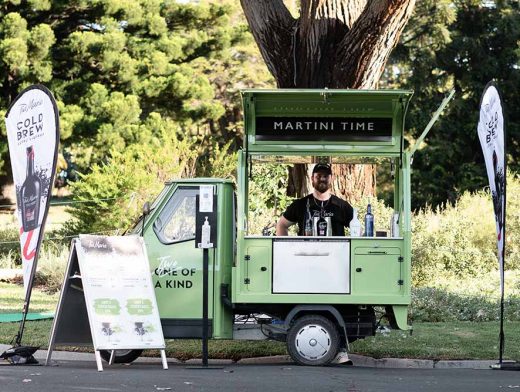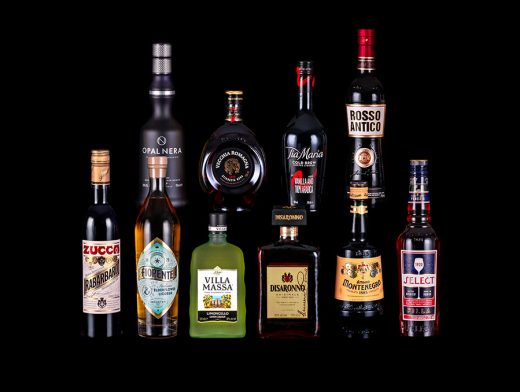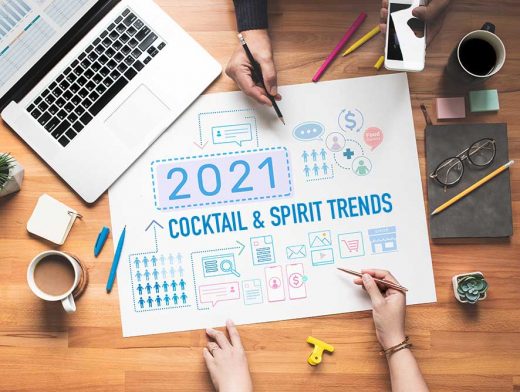With more and more Australian consumers looking for a more premium alcohol experience, authentic branding and storytelling is steadily becoming a must in the modern liquor landscape. One of the many benefits of customers exploring more premium options when it comes to alcoholic beverages, is that they’re starting to educate themselves more on the craft of their products and as a result, starting to crave authenticity from their alcohol brands. This means greater focus on provenance, craftsmanship and locally sourced ingredients.
As mentioned above, authenticity isn’t simply a certificate on a piece of paper when it comes to alcohol – in fact authenticity is one of the key elements behind the overall premiumisation trend that we’re seeing with Australian consumers. Since premiumisation is trending, the general recommendation for any liquor store or licensed premise is to include high end brands in their offerings and actually learn some of the history behind them. By pushing brand integrity, liquor retailers can speak to the modern desire for craft spirits and ethically sourced ingredients and labour, that in itself is imbued with a sense of passion.
Including spirits with provenance that pride themselves on craftsmanship is a great way to boost revenue for businesses – whether these spirits feature in cocktail drinks or are consumed alone, it’s a great way to entice younger drinkers who are interested in expanding their tastes in alcohol.
Authenticity can be broken down into categories which will help retailers, venues and customers interpret and showcase value when it comes to spirits. These categories are; flavour, provenance and ethical craftsmanship.

Flavour
Flavour might not be the first thing you think of when it comes to authenticity, but it’s the thing that keeps customers coming back to particular brands and spirits. Authenticity in flavour is actually closely tied to tradition, and by extension, provenance. Often, spirits with long histories will have a distinct flavour profile that comes from carefully selecting ingredients, then applying the same manufacturing techniques that have been used for decades, sometimes centuries. As a result, the flavour produced is entirely unique to the spirit and is a primary point of difference.
As we established in our premiumisation article, younger drinkers are moving away from a typical beer or wine, more willing to experiment with unique flavours. So stocking brands like Chartreuse, The Botanist Gin, and Fiorente Elderflower Liqueur are great for capturing a more adventurous audience looking for something different. Liqueurs with distinctive flavours are also great additions to, or bases for cocktails, adding depth and providing opportunities for bartenders to unleash their creativity.
Provenance
Provenance refers to the place of origin or earliest known history of a thing, and can be applied to liquor and its manufacturing. Provenance is a pillar of authenticity because brands that pass down techniques, ingredients and recipes to each generation of new distillers stays true to the original flavours and traditions of the beverage.
There are many premium brands that pride themselves on having a rich, detailed history marked by long traditions. Most of these provenance focused brands also continue to manufacture their spirits in their original distilling premise, ensuring each master distiller is preserving everything that makes the spirit unique, and thus maintaining the brand’s authenticity.
Location also plays a huge role in provenance and its importance since most traditional brands source their ingredients locally. This means that the location in which a beverage is made also influences the flavour profile – something we typically see in the manufacturing of whisky and certain liqueurs ie. whisky can only be classified as scotch whisky if it is produced in Scotland following strict manufacturing guidelines.
Ethical and Sustainable Production
Ethical and sustainable production is really more of a by-product of authenticity, but it doesn’t mean consumers aren’t making the connection between authentic brands and whether or not they are sustainable. A report from 2020 claimed that overall, the alcoholic drinks industry scored a very mediocre 4.8/10 when it came to sustainability which is concerning as more consumers are looking to make sustainable purchasing decisions. The positive thing, however, is that many authentic brands work in smaller batches with ingredients that are locally sourced and produced by longtime experts, allowing them to be more sustainable during the production process.
Another way that authenticity becomes linked to Ethical craftsmanship is through the production process of the liquor itself. With legacy brands that have a long history of provenance and tradition, many of the original production methods and tools are still used to this day to guarantee consistency in taste and quality. Since the facilities, tools and methods are so inextricably linked to the legacy and flavour of each beverage, this also ensures that items in production are constantly being reused and maintained rather than regularly replaced, lowering the environmental impact of production and retaining and retaining the authentic flavour.
Liquor brands such as The Botanist Gin pride themselves on production transparency, with every botanical hand foraged by gin experts and distilled from local sources on the island of Islay in Scotland – ensuring ethical labour practises and guaranteeing that ingredients are ethically sourced. In fact, Bruichladdich Single Malt Scotch Whisky and their gin counterpart The Botanist are actually one of the only a few distilleries in the world to be B Corp certified, making it fully sustainable!

Takeaway
The Australian consumer’s thirst for more authentic brands is more present than ever, and we can’t see this going away any time soon. Authenticity, which we’ve boiled down to three key components, are integral to a lot of premium brands and as Aussies cut down on their overall alcohol consumption in favour of more premium alcoholic experiences, it’s easy to see why they’re willing to spend a bit more on brands with authentic stories and practises. So if you’re a venue manager, a bartender or a liquor store owner, and you’re looking for more information on how to add value to your business check out Spirits Academy.
Spirits Academy offers businesses education on the premium liqueurs, cognacs, gins and whiskies that make up the Spirits Platform portfolio and helps them understand how to use these products to deliver a more exciting experience for their customers. From each brand’s story, to helping craft drinks that keep consumers happy and returning for more, Spirits Academy is a great way to give your business a boost.
Download our portfolio here or see below our Spirits Academy team member contact details in your state.








